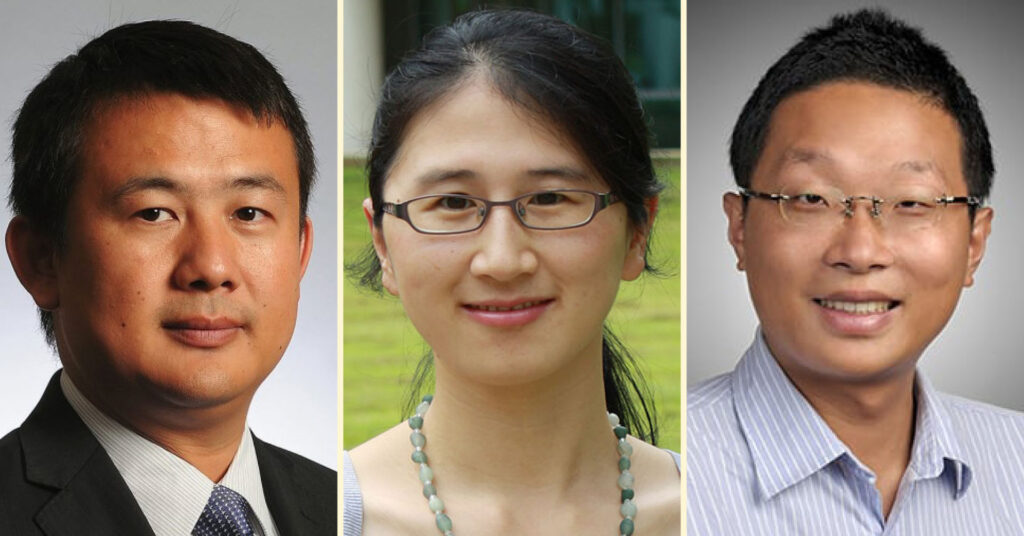A team of UCF researchers in collaboration with Duke Energy has won an inaugural Department of Energy competition designed to illuminate new ways of processing data in the energy sector.
The Sun Team – consisting of two electrical and computer engineering department faculty, Wei Sun and Qun Zhou Sun, statistics department faculty member Hsin-Hsiung Huang, along with Duke Energy lead engineer, Scott Zhang – was selected as one of nine Phase I winners of the inaugural Digitizing Utilities Prize. Selected from 39 teams nationwide, each awardee received a $75,000 prize and advanced to Phase II of the competition.

In Phase I, teams were tasked to solve one of three utility challenges, all related to improving how large data sets are analyzed, processed and stored by power systems. The Sun Team worked with longtime industry partner Duke Energy on their proposal, Digitizing Distribution System Model Validation, which addresses a widespread issue across the energy sector: model mismatch.
Utilities manage and operate the power grid with a system model that relies on inputted measurements to simulate its performance. Model mismatches occur when the data used in the model does not accurately represent what is occurring in the grid. The Sun Team’s work focuses on model validation, which identifies the root causes for the mismatch between the actual system and the power flow solutions from the software.
Wei Sun says having an accurate power system model is critical to power system efficiency, power quality and energy liability, helping Duke Energy continue to provide reliable service for its customers.
“Identifying the root cause of model mismatch is extremely challenging due to the large amount of power components, the sparse measurement and the complicated correlation between input errors and output consequences,” he says. “This project is aimed at significantly reducing the manhours in tracing the root causes of model mismatch through developing an automated tool to digitize the model validation process.”
Phase II puts the team’s work to the test as they implement their solution for Duke Energy, showing how their work can be used by other utility companies. They will execute the proposed solution algorithm, validate its performance, and demonstrate its feasibility and effectiveness through modeling and simulation. Up to four winners will be selected during Phase II, splitting a $425,000 cash prize.
“We greatly appreciate this opportunity from DOE, and it allows us to collaborate with industry members and work on some practical issues in utilities,” Sun says.
Story by Bel Huston | July 19, 2023
